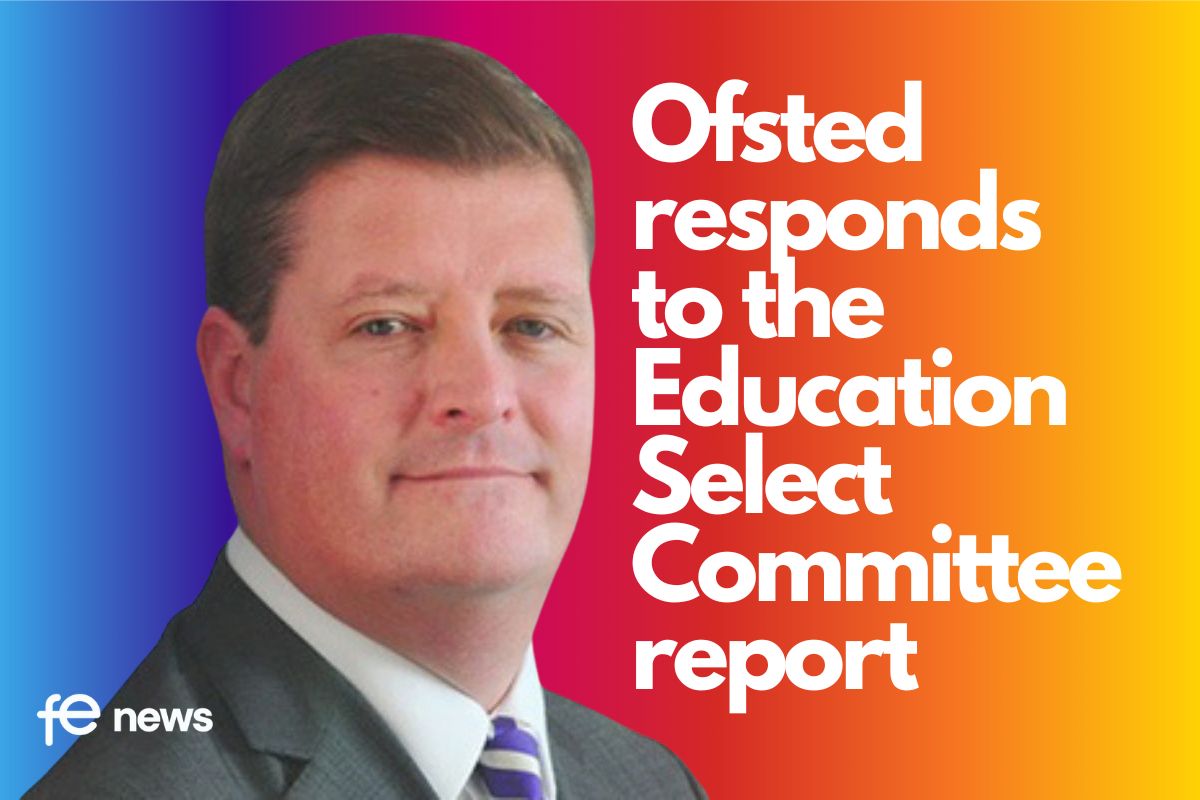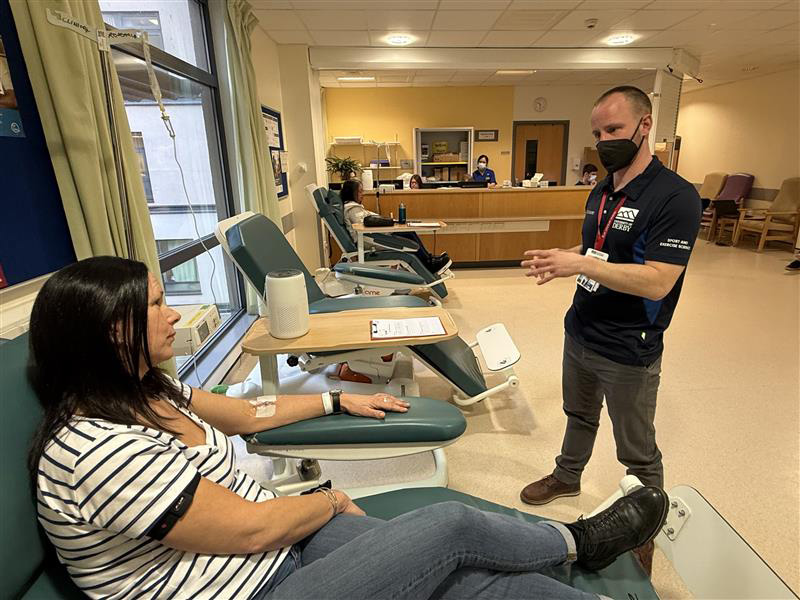Ofsted responds to the Education Select Committee report

- Ofsted welcomes the recommendations from the Education Select Committee’s (ESC) Inquiry into its work, the results of which helped in planning the Big Listen launched on Friday 8 March.
- Response is clear that implementing many of the Inquiry’s recommendations would require additional funding from the Government.
- Meeting the ESC’s calls for deeper and richer inspection is estimated to cost an additional £8.5m a year.
Ofsted‘s has today responded to each of the Education Select Committee’s recommendations; including confirming a review of its current risk assessment model, agreeing to publish our training materials for inspectors, and considering many of the other recommendations as part of the Big Listen.
The response is clear that implementing these recommendations needs to be discussed within the context of funding constraints. It explains that, while Ofsted’s role and responsibilities have expanded significantly since 2005, its funding has fallen significantly over the same period, and is now 29% lower in real terms compared with 2009/10.
This squeeze on resources means Ofsted is continually having to make difficult decisions to fulfil its statutory duties on inspection and regulation. Ofsted welcomes the committee’s support in recommending additional funding for more in-depth inspections, noting that the sooner inspectors can diagnose weaknesses and celebrate strengths, the sooner a school can get the support it needs to improve.
One way Ofsted could inspect schools in greater depth is by ensuring that every inspection is led by one of His Majesty’s Inspectors and that the inspection team has an additional inspector on the team. This change would provide several additional benefits, including allowing for more time to explore the school’s unique approach. Delivering this additional depth in school inspections would have a direct cost of £8.5 million per year.
Ofsted’s Chief Inspector, Sir Martyn Oliver said:
“I am committed to running an open and transparent organisation and I welcome the committee’s recommendations. We have already made several positive changes over the last year, and I have promised that we will do more. But we have to accept that anything we do has to be within the budget constraints we have.
“I want to encourage as many people as possible to take part in our Big Listen, to help inform our future direction and make sure all children have the best possible education, care, and life chances.”
Sector Reaction:
Commenting on Ofsted’s response to the Education Select Committee report calling for major changes to the inspectorate’s work, Daniel Kebede, General Secretary of the National Education Union, said:
“There will be real disappointment and consternation that Ofsted hasn’t addressed single-word judgements, despite the cross-party Select Committee having asked Ofsted to develop an alternative to these blunt verdicts. The single word judgements have a deeply detrimental impact, including too much pressure on individual leaders. They cause experienced and much needed staff to leave schools in deprived areas. It’s not going to be possible to keep, and attract, enough talented school leaders without change to this narrow aspect of the system. They actively undermine equity in our school system.
“It is time to act on the recommendation from the Education Select Committee for the Department for Education to look again at their policy of threatening schools in receipt of two consecutive ‘requires improvement’ judgements with forced academisation.
“There should have been more response to the Select Committee recommendation that Ofsted must review the implementation of its current framework and its impact on workload. Workload in primary schools has risen directly from the current framework, at a time when pay for additional responsibilities in primary schools are less and less readily available. The culture created by the Ofsted framework is a key driver of the levels of unsustainable workload shown in the recent DfE survey on the working lives of teachers and leaders.
“Less than half of teachers in a recent NEU survey agreed that the inspectors conducting their most recent Ofsted inspection were ‘reasonable, professional, and considerate.’ Only 3% of teachers thought that two weeks of mental health training were sufficient to ensure teacher and school leader safeguarding, and the majority thought it would make no meaningful difference.
“The case for root and branch reform has near universal agreement. Ofsted must be replaced with a new system of inspection that is supportive, effective and fair, such as the proposals by the recent independent Beyond Ofsted inquiry, sponsored by the NEU and chaired by Sir Jim Knight. Bringing expertise rather than judgement would help protect the wellbeing of teaching staff, which would in turn help ensure children and young people from all backgrounds thrive in school.”
Tom Middlehurst, Inspection Specialist at the Association of School and College Leaders, said:
“Ofsted’s ‘Big Listen’ is an important step forward and we note their promise to address many of the select committee’s recommendations immediately after this exercise concludes. It’s vital that this results in the major reforms that the inspection system requires. Some of these changes, including scrapping single-phrase judgements, can only be enacted by government and therefore the Department for Education needs to be listening just as intently.
“We welcome Ofsted’s commitment to publishing training materials. This is something we have long been calling for and will help bring much-needed transparency to the inspection process, and end the cottage industry of second-guessing what Ofsted want.
“However, we do not feel that spending more money on Ofsted is the right priority and surely cannot be justified at a time when schools and colleges are in the depths of a funding crisis. Any additional funding for education must go to the frontline to put schools on a more sustainable footing. There are important reforms to the system, such as scrapping single-phrase judgements, that will make a huge difference without costing a penny.”











Responses